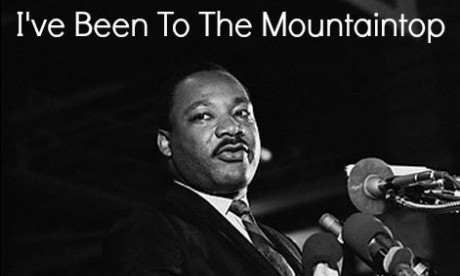In “I’ve Been to the Mountaintop,” the soaring and chilling speech he delivered the day before his assassination, Martin Luther King Jr. ponders the thought of life in other places and times.
Among other eras in history, he considers the prime of classical Athens, when he could have enjoyed the company of luminaries “around the Parthenon as they discussed the great and eternal issues of reality,” along with “the great heyday of the Roman Empire.”
These considerations of ancient Greece and Rome, in what would be King’s final speech, speak to his close engagement with the Classics throughout his writings.
As one whose courses consider how classical ideas have contributed to public dialogue in the twentieth and twenty-first centuries, I want to address here two particular points of contact with ancient Greece that loom large in King’s thinking and teaching: King’s advocacy of the Greek concept of agape, transcendent love for others, is critical to his message; and his embrace of Socrates as a model of civil disobedience, is revealing of his method.
More than “love”
At the core of King’s social teaching lies the necessity for human beings to embrace an all-encompassing love for one another.
But the English word “love,” with its abundance of associations, was too imprecise for what he wanted to convey. In order to express more clearly the type of transcendent love for humanity he was advocating, King turned frequently in his speeches to the ancient Greek he had studied at Crozer Theological Seminary and Boston University.
Building on the work of contemporary theologians – the American Harry Emerson Fosdick (1878-1969), the Swede Anders Nygren (1890-1978) and the German Paul Tillich (1886-1965) – King underscored the distinctions between the Greek words eros (romantic love), philia (the love of personal friendship) and agape. Continue reading
Sources
- ABC Religion & Ethics. The article is by Timothy Joseph, an Associate Professor and the Chair of the Department of Classics at the College of the Holy Cross.
- Image: Unheard Voices
News category: Features.




